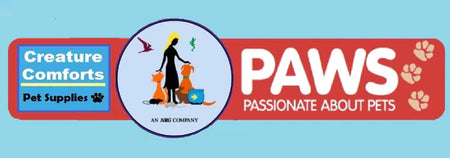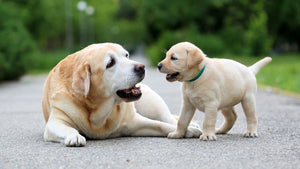 With 188 pedigree breeds recognised by the Kennel Club as well as a large variety of crossbreeds, there are plenty to choose from. Dogs come in all shapes and sizes from the biggest – the Great Dane – to the smallest – the Chihuahua – and each breed has different needs and requirements.
With 188 pedigree breeds recognised by the Kennel Club as well as a large variety of crossbreeds, there are plenty to choose from. Dogs come in all shapes and sizes from the biggest – the Great Dane – to the smallest – the Chihuahua – and each breed has different needs and requirements.
Before you commit to buying a puppy, it is a good idea to do some research into the type of dog that will and won’t fit you and your lifestyle.
Things to Consider:
- Would I prefer a pedigree puppy or a crossbreed?
- Is this breed compatible with my lifestyle?
- What size will the dog become when it reaches full adulthood, and is my home and garden suitable?
- Can I afford the cost of feeding and healthcare?
- Do I have the time for the exercise my dog will require?
- How much time do I want to spend grooming my dog? (Some breeds require grooming for an hour or more per day)
Housing

Choosing a suitable bed or basket for your dog is very important, as this is the place where he or she should feel safe and secure. We stock a range of dog beds including waterproof, hard-wearing, plastic, wicker, washable and fleecy beds. Come and look around our shop for some inspiration!
Feeding
 Here at PAWS we stock frozen dog food and we also cater for dogs with specialist dietary needs. We can supply food for overweight dogs, elderly dogs, dogs following a vegetarian diet or with particular sensitivities and dogs following a hypoallegentic diet. Dog food is available for all different growth stages.A good diet for a dog should be made from high quality natural ingredients with plenty of meat and no artificial additives. Ideally it should have active ingredients such as prebiotics and nucleotides to provide extra support for long-term health and well-being. There are a number of feeding regimes to choose from when considering your dog’s diet: dry complete diets, semi-moist or tinned food with or without biscuit mixer and home-made food. Not all dogs eat the amount recommended by the food manufacturers.
Here at PAWS we stock frozen dog food and we also cater for dogs with specialist dietary needs. We can supply food for overweight dogs, elderly dogs, dogs following a vegetarian diet or with particular sensitivities and dogs following a hypoallegentic diet. Dog food is available for all different growth stages.A good diet for a dog should be made from high quality natural ingredients with plenty of meat and no artificial additives. Ideally it should have active ingredients such as prebiotics and nucleotides to provide extra support for long-term health and well-being. There are a number of feeding regimes to choose from when considering your dog’s diet: dry complete diets, semi-moist or tinned food with or without biscuit mixer and home-made food. Not all dogs eat the amount recommended by the food manufacturers.
The right amount should produce firm, dark brown, crinkly stools. Most dogs appreciate being fed twice a day, but it is fine to feed once a day if that suits you and your dog’s lifestyle better.
Feeding Tips
- Any change in diet should be made very gradually over at least a week to avoid upset and you should try a new diet for at least 10 days before making any further changes.
- Fresh water should be available to your dog at all times.
- Never feed your dog from the table or your plate, as this encourages drooling and attention-seeking behaviour such as begging and barking.
Socialisation and training
It is essential to train your dog. A well-trained dog is a happy dog, able to deal with new people and situations and less likely to exhibit problem behaviour. As such, it pays to spend time getting things right from the outset. Key commands to teach your dog are ‘Sit’ ‘Come’ and Stay’.
Training Tips

- Use high quality training treats.
- Short regular training lessons are best.
- As dogs don’t speak English, they learn to associate sounds with actions.
- If your dog seems to be confused, try going back a stage in your training process.
- Link the command only when the dog has perfected the action.
- Remember that all dogs learn at different rates.
Toys
The role of a dog toy is closely linked to the dog’s inbuilt nature. A toy, when hidden under a blanket or around the house, encourages the dog’s natural instinct for foraging and exploration. Retrieving games provide excellent exercise opportunities, while tug of war games permit the dog to practice protecting and holding. Some toys, designed to be played with by the dog alone, allow the practice of manipulation and chewing, which helps to maintain healthy teeth and gums. An occupied dog won’t become bored, and is less likely to develop uncontrollable or bad behaviour.

Exercise
 Your dog requires daily exercise. How much exercise your dog needs will depend very much on its type of breed. Remember that when walking your dog in public areas, it should always be kept on a lead. You must always be vigilant about cleaning up your dog’s mess in order to abide by the law, and not doing so carries heavy fines. We stock poop bags in our shop. It is also law that your dog must wear a collar with a tag or disc which bears owner’s name and address. At PAWS we offer a specialist fitting service for dog’s coats, harnesses and collars.
Your dog requires daily exercise. How much exercise your dog needs will depend very much on its type of breed. Remember that when walking your dog in public areas, it should always be kept on a lead. You must always be vigilant about cleaning up your dog’s mess in order to abide by the law, and not doing so carries heavy fines. We stock poop bags in our shop. It is also law that your dog must wear a collar with a tag or disc which bears owner’s name and address. At PAWS we offer a specialist fitting service for dog’s coats, harnesses and collars.
Grooming
Grooming is essential, especially for long-haired dogs. If the hair is left unbrushed for a period of time, it will twist and matt together, causing the dog discomfort. Regular grooming of short-haired dogs is also important, as loose hairs can irritate the skin. Your dog may require the odd bath, and will need its nails clipping on a frequent basis.


Worming, Flea Control & Vaccinations
Keep your dog healthy by giving it regular treatments for fleas and other skin parasites. You should also worm your dog every 3 months to treat roundworm and tapeworm. Your vet will be able to provide the necessary vaccinations for your dog, while PAWS stocks worming and flea treatments.

Your Essential Doggy Shopping List

- Food
- Food Bowl
- Water Bowl
- Basket/Bed
- Brush & Comb
- Disc/tag
- Indoor kennel
- Food Mat
- Bedding
- Collar and Lead
- Worm and Flea preparations
- Book on dog care
- Toys and treats
- Poop scoop bags

